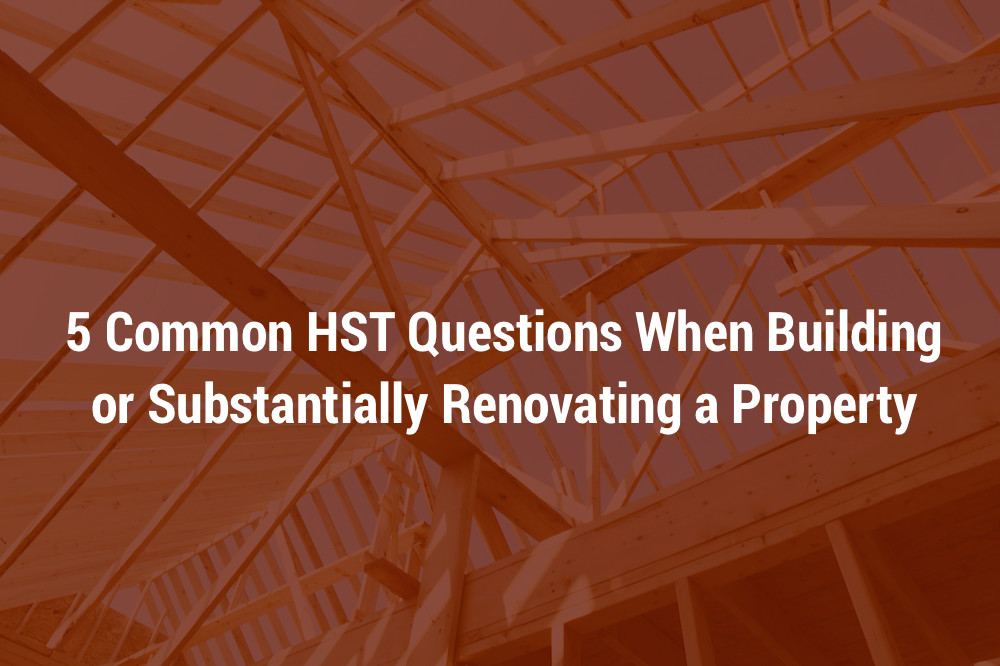

Victoria Day long weekend is always fun in our neighborhood. One of our neighbors organizes an annual fireworks event every year.
This year as a collective group, we spent over a thousand dollars on the fireworks.
It was an amazing show. Over a 100 people attended. I was amazed by the quality of the fireworks.
And I was amazed by how well my kids stayed asleep during the entire show, even though the fireworks were happening right outside of their windows. ?
Recently, I’ve got a few clients asking me about the HST impact on flipping properties after a renovation. It is different to opting for someone like Cascade Mountain Construction to start afresh when making you a home from scratch. It is a confusing area of the Excise Tax Act. Several interpretations were published by CRA on this topic.
Here’s the simple definition:
A builder is responsible to charge HST on a newly constructed and a substantially renovated home.
It’s never really simple when it comes down to Excise Tax Act or Income Tax Act. I’ve come up with a few common scenarios for our discussion.
Yes, absolutely. If you purchase a house with the intention to flip, tear the old house down and build a brand new home, it is considered a newly constructed house and you are required to charge HST on it!
When you go through the standard RECO Offer to Purchase form, a standard clause would have been included forcing the buying agent to choose whether the sale price is inclusive or exclusive of HST.
Residential resale homes are generally HST exempted. Hence, the majority of the sale would state that the sales price is inclusive of HST.
When you build a new home after tearing down the old one, you are required to pay HST. More often than not, the sales price is also inclusive of HST.
That depends. If the renovation is not substantial, you are not required to charge HST.
“A substantial renovation is considered to have taken place where all or substantially all of the interior of a building, with the exception of certain structural components (the foundation, external walls, interior supporting walls, roof, floors and staircases), has been removed or replaced.” For example, changing the front door design and any interior doors does not count as a substantial renovation and so you won’t be required to charge HST. All or substantially all means 90% or more, calculated based on any reasonable method and basis, such as floor space, floor and wall space and number of rooms.
If you did substantially renovate a house (many investors use the term “gutted the entire house”), chances are, you are required to charge HST, which can eat into your profit.
But if you didn’t renovate substantially, you are still encouraged to keep proper evidence, before and after pictures/videos of renovation. This will come in handy if you ever get audited.
New Residential Housing Rebates are available for the builders to claim, if the buyers intend to move into the property and assign the rights to the builder to apply.
If the sale price is over $450,000, no GST rebate is available.
You would still be eligible to claim $24K of Ontario PST rebate back.
If the buyers intend to rent the residential property out, as a builder, you do not have the right to claim the New Residential Rental Housing Rebates back. The buyers would have to claim this back themselves after closing.
This can get real messy.
If you are building a house in the normal course of business or in an adventure in the nature of trade, you are required to do a self assessment at the time of completion.
Self assessment of HST is calculated at fair market value of the property at the time of completion.
It’s complicated, let’s use a simple example here.
You own a piece of land that allows you to build 4 detached homes and fully intend to sell them to a third party for a profit upon completion.
You start construction, claim HST paid on the acquisition of land, and all materials purchased.
Life circumstances change and you decide to move into one of the 4 homes.
In this case, you are REQUIRED to do a self assessment on HST at the time the house is substantially completed.
Another example here.
Same scenario as above, except that you always knew that you intended to move into one of these 4 houses.
You paid the HST and did not claim it back on ¼ of the land acquired.
You also did not claim any of the HST paid on the expenses incurred on your own house.
You move into the property and occupy the place as your primary residence.
In this case, you do not need to pay HST on fair market value of the property.
If you claim input tax credit on the purchase of materials & land, self-supply rules kick in and you need to pay HST at closing on your own property.
If you build or substantially renovate a house, rent it out for a couple of years, and sell it.
Self-assessment rule applies to you.
You are required to calculate your HST payable on the fair market value when the lease starts.
However, when you sell the property, HST does not apply as HST was already paid at the time the property was rented out as someone else’s residence.
HST impact in the construction industry can be quite complicated. Consult a professional to see if there’s any planning possibility so you don’t lose 13% of your profit to CRA.
Until next time, happy Canadian Real Estate Investing.
Cherry Chan, CPA, CA
Your Real Estate Accountant